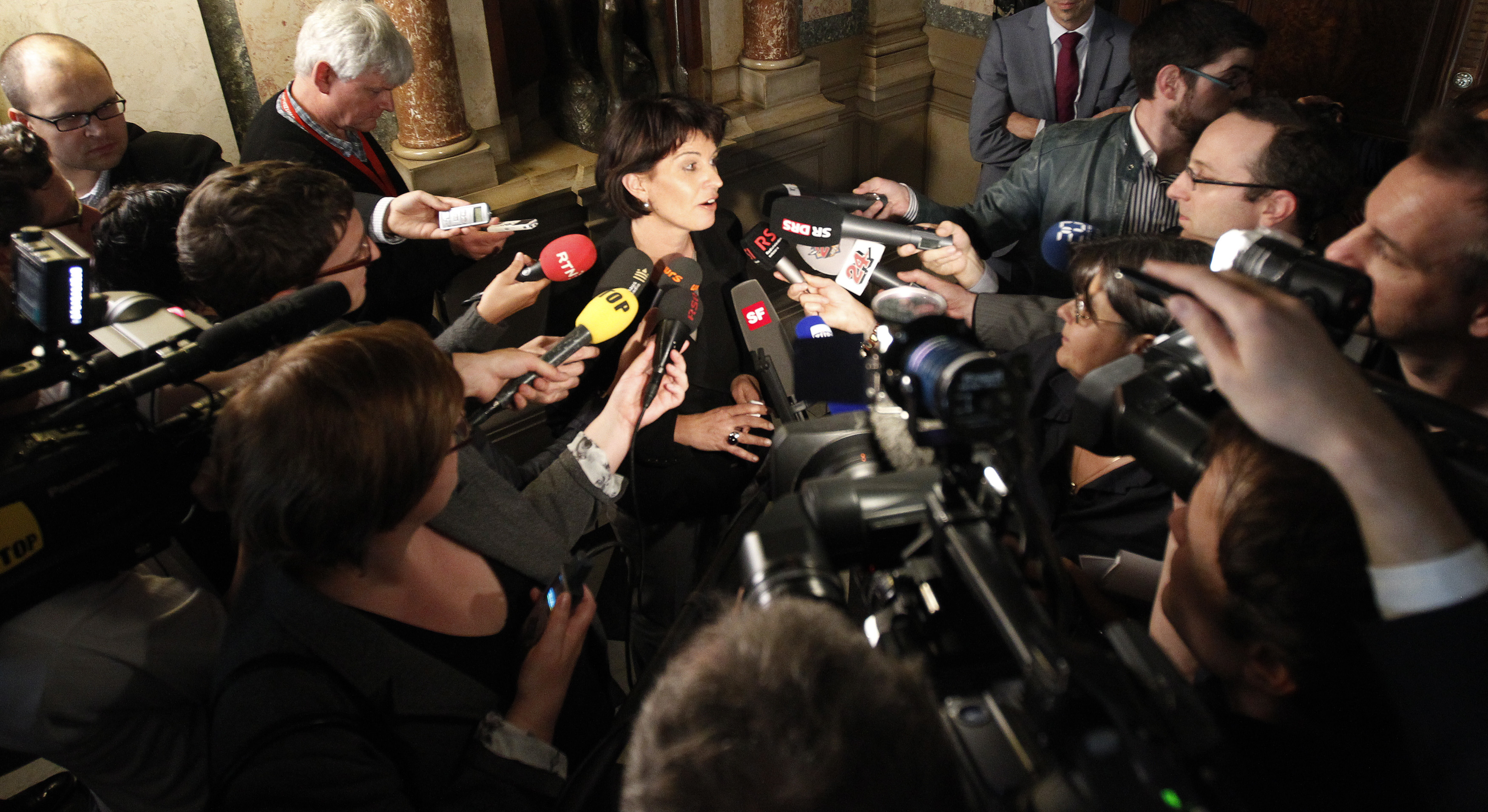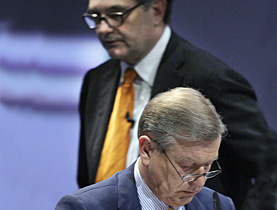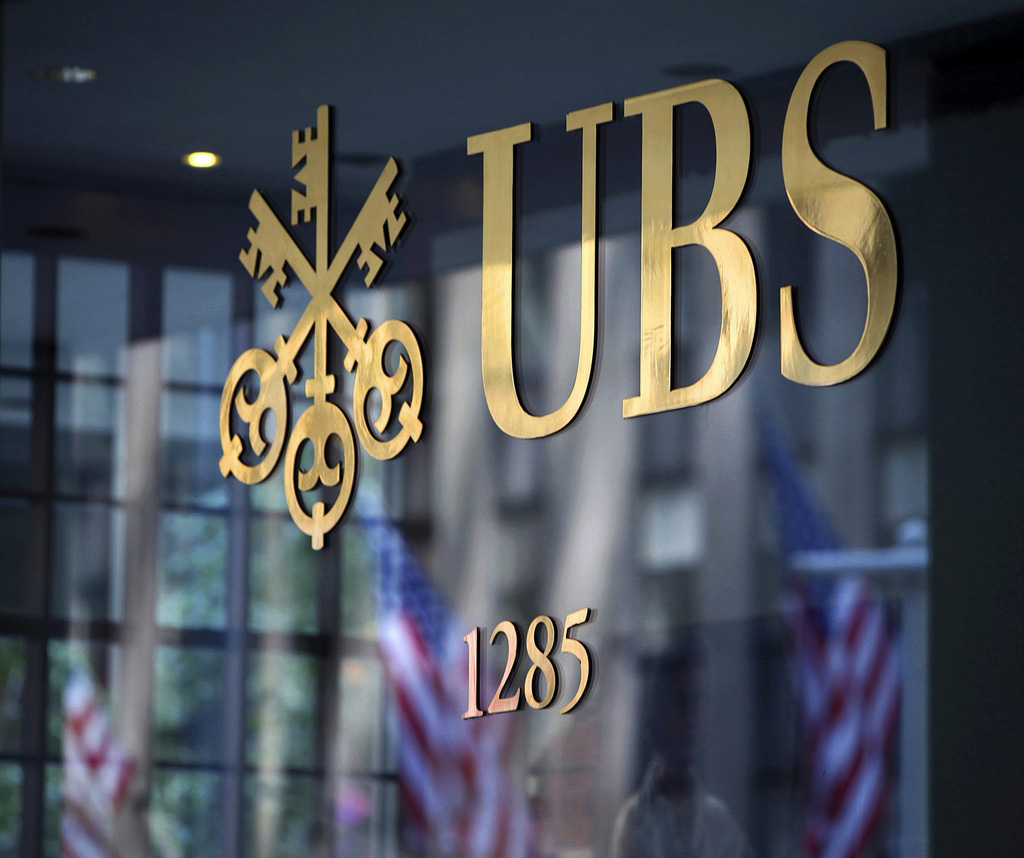Press criticise government role in UBS crisis

Swiss newspapers have welcomed a parliamentary report saying the government failed during the global financial crisis and in its treatment of embattled bank UBS.
However, many commentators didn’t think the report went far enough and are now calling for a parliamentary investigation to shed light on the role of UBS in the mess.
For the Tages-Anzeiger the report painted “a picture of failure” of the government as a body and Finance Minister Hans-Rudolf Merz in particular.
Merz had informed the other members “much too late” about the extent of the crisis, it said, and the others had “never seriously questioned him”.
The Berner Zeitung didn’t spare Merz either. “Once again he massively overestimated his abilities and wanted to sort out the situation on his own.”
But as in the Libya affair, when Merz flew to Tripoli without telling any of his colleagues and apologised for the arrest of a son of leader Moammar Gaddafi in Geneva, “Merz and complex challenges under pressure don’t go together”, the paper added.
The Aargauer Zeitung called for Merz’s resignation. “We managed to get out of the mess yet again – not because of Hans-Rudolf Merz but despite him,” adding that the situation had only been saved by a few “cool heads” in the Swiss National Bank (SNB).
The tabloid Blick put the boot into not only the finance minister but also Justice Minister Eveline Widmer-Schlumpf – “it was after [she] took over following Merz’s [2008] heart attack that it all turned pear-shaped,” it wrote.
Call for reform
“The seven sages [of the cabinet] have an inability to act together. Internal communication is also riddled with holes,” said the Quotidien Jurassien. “Under these circumstances government reform would appear necessary.”
La Liberté from Fribourg agreed that, given the problems, the envisaged measures – which include written statements on consultations within the government and decisions taken – were far from enough.
“To believe that a two-year presidency [at present it is only one] and more secretaries of state would steady the ship is putting excessive trust in the federal lucky star,” it said.
Le Temps in Geneva was softer on the government, saying one had to look much further than the local shortcomings presented in the report. It placed a collective responsibility on “the vast majority of the political and economic world”.
Parliamentary investigation
The Tages-Anzeiger said the report was a “starting point” for a parliamentary investigation, in addition to civil action against UBS.
Such an investigation would be a chance “to shine light into the dark”, according to the Zürcher Landzeitung, which said that calling for an investigation wasn’t “cheap populism but proportionate to the scope of events”.
The St Galler Tagblatt agreed, pointing out that people shouldn’t hold their breath for an investigation miracle but that events demanded the widest possible parliamentary means.
The Neue Zürcher Zeitung thought a parliamentary investigation could fill in the one weakness in the report: the role of UBS, which, it believed, was “in need of a wide-ranging explanation”.
La Liberté also backed an investigation, saying it was high time to submit UBS to “merciless scrutiny”.
“Wasting energy”
However, Le Temps in Geneva decided that the taboo of banking secrecy was “still far too hardy to be shattered by the truth even if a parliamentary investigation was set up”.
The Neue Luzerner Zeitung said that while the report’s findings were “hair raising”, apart from the SNB “everyone else had failed”.
“The government must finally get its act together and work as a team. The proposals are all on the table – they must now be quickly implemented, rather than wasting energy in endless debates about parliamentary investigations.”
But Blick said an investigation was the only way ahead. “The parliamentary control committees’ report is an impressive piece of hard work, but it’s not enough. What role the UBS system of patronage played in the government and the financial supervising authority is still far from clear.”
Summing up, it cast an eye on the billions of francs of public money used to bail out UBS and quoted German playwright Bertolt Brecht: “Ourselves, dismayed we stand, concerned in vain, the curtain’s drawn, all questions remain.”
Thomas Stephens, swissinfo.ch
UBS is the world’s number two wealth manager by managed assets and Switzerland’s second largest bank.
It has a workforce of more than 76,000 worldwide, including nearly 30,000 in the US.
In February UBS paid a $780 million fine and given information on 255 clients after admitting that some of its bank employees had helped US citizens evade taxes.
UBS, which benefited from a multi-billion bailout package by the government, posted a record loss in 2008.
Recruited by UBS in 2001 and resigned in 2005 among concerns about the legality of some of the bank’s activities with certain American accounts and transactions.
He blew the whistle in 2005 and alerted US authorities about the bank’s efforts to allegedly help wealthy Americans hide assets from US tax collectors.
His actions resulted in American justice authorities fining UBS $780 million and forcing the bank to hand over the names of 4,450 wealthy American clients to the Internal Revenue Service, a ruling that conflicts with Switzerland’s tradition of banking secrecy.
Swiss parliamentarians are to vote on whether the country should follow through with the agreement. The government says not doing so would greatly damage Switzerland’s reputation as a state that carries out its commitments, while some political parties want to use the issue to force financial sector reforms, particularly over banker bonuses and salaries.
In 2009 Birkenfeld was sentenced to jail for not cooperating enough with investigators looking into the case of American UBS client Igor Olenicoff, a real estate developer who filed tax returns that failed to declare his offshore accounts. He asked President Barack Obama for a pardon in April 2010. Investigators have said Birkenfeld’s information has been crucial to mounting their case.

In compliance with the JTI standards
More: SWI swissinfo.ch certified by the Journalism Trust Initiative












You can find an overview of ongoing debates with our journalists here . Please join us!
If you want to start a conversation about a topic raised in this article or want to report factual errors, email us at english@swissinfo.ch.